How to make the Flag/Human Flag?
Hi there, and welcome to this new article! 😄
After the Front Leverthe Flag, let's discover together another iconic figure of Street Workout: the Flag.
The Flag or Human Flag is an iconic figure that symbolizes the body's mastery of space. It seems to defy gravity, but it's accessible to anyone with hard work, whatever your height or weight.
It's good to have a dream. Here's a complete system for making it come true. This guide will give you all the keys you need to hoist your own colors to the wind.
So let's get to the prerequisites without further ado! 🔥
PREREQUISITES AND FLAG PROGRESSION
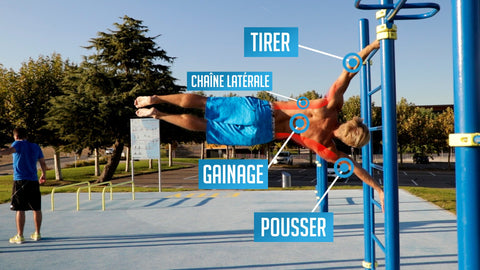
The Flag requires you to push and pull while maintaining a solid sheathing, including the lateral chain. Before you start, make sure you can do a dozen pull-ups, dips and are comfortable with leg raises. A good grip is essential, so practice one-arm hangs and use liquid magnesia.
Mastering the Dragon Flag is a plus, or training it in parallel can help. To work the sides of your body and keep motivated, learn the semi flag:
Arm positioning is crucial. For the front support, place your elbow in your stomach and hold without touching the ground. Then move on to the side support, placing your elbow to the side. Contract your body and force your arms to gradually raise your semi-flag to the horizontal. :

HAND POSITION
Let's move on to the complete Human Flag, which can be performed with three different types of grip:
1. Grip on a vertical bar: Top hand pronated (palm forward), bottom hand supinated (palm along the bar).
2. Grip on two horizontal bars: Palms facing each other, hands directly one above the other.
3. Mixed grip: All other possible combinations, such as the hammer grip or more exotic variations.
The vertical bar grip complicates the exercise because of the body's tendency to rotate around the bar. To begin with, I strongly advise you to train with two horizontal bars, or at least to use this grip for the top hand. The width of the grip will depend on your comfort level and the set-up available.
THE HEATING OF THE FLAG
For the general warm-up, you can keep the same as for your usual workouts, including a few pull-ups and dips.

For specific warm-up, the standing obliques are ideal, as is the standard floor workout. Speaking of claddingHere's a series of increasingly difficult positions that I like to call "flag preliminaries".

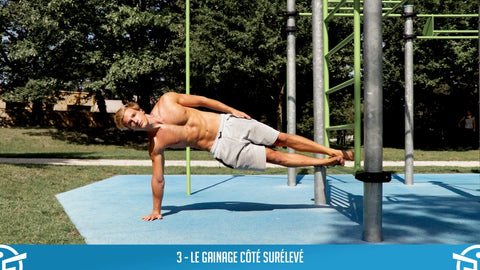

You can use them to warm up, consider them as the first progressions to master in order to reach the final exercise, or, if you already have a good level, skip them entirely and go straight to the heart of the matter.
STATIC FLAG PROGRESSIONS
When it comes to flags, let's talk about static progressions. First, let's distinguish between two types of flag:
1. Frontal flag: This position is reminiscent of the Front Lever or Dragon Flag, with the front of the body facing the sky.
2. The side flag (or short flag): The body faces the sides.
In my opinion, the front flag is easier than the side flag. In these progressions, we're going to use both types, as they complement each other and some positions don't work well with the side flag. For example, we'll avoid tucking sideways, as this shifts your center of mass, throwing you off-balance and risking you spinning. Let's start with the first progression:
1) The 45-degree flag : This progression is useful, but you can skip it if you don't have the necessary set-up.

2) Supported flag
Then it's on to assisted flag support. For this, here are some important execution points:
- Position Don't face the ground or sky, but directly to the side. Open your ribcage and keep your head between your arms, not behind them.
- Arm Keep your arms straight. Pull with your upper arm and push with your lower arm. Push actively with all your arms, shoulders included, without sticking them to your head, which is a common mistake at first.
- Sheathing : Train the sheathing seen above to help you maintain this position.
Start by assisting the flagpole with your feet, then less and less, until you manage to keep the flagpole active for 10 to 15 seconds.

3) The active flag support

4) The shoulder press
The shoulder press in active support will help you a lot for the next stage. It will clearly make the next stage easier.

5) The flag jump
Here, you're going to train yourself to jump high enough while forcing your arms and abs to end up upside down, in a vertical tuck. Make sure you remain actively supported, stable and with your arms straight.
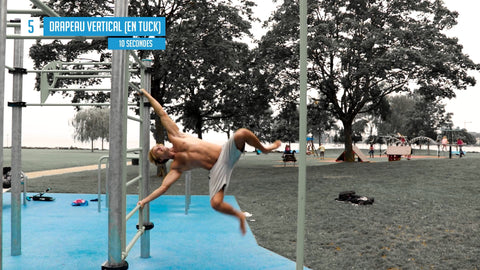
6) Front tuck
Front tuck: Descend in a controlled manner from the vertical tuck and hold the position for at least 5 seconds. If you find this difficult, do negative repetitions, gradually slowing them down until you can completely lock the position horizontally.
If you're stuck, regress one or two progressions and work in positive repetitions.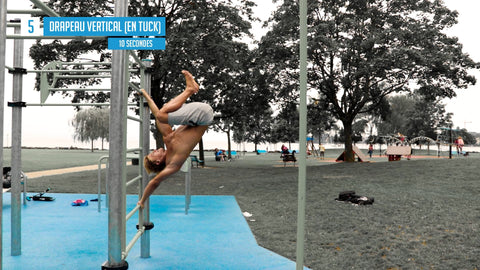
The next 3 progressions are not always necessary. Test them out and keep the ones that suit you best.
7) 1-leg front flag
As with all exercises in this sport, single-leg variations are always performed with the thigh perpendicular to the body, which remains upright, and not with the knee pulled against the pectorals, which breaks the whole execution.

8) Split-leg side flag
The split-leg side flag is lowered from the top. Make sure your body forms a cross and avoid keeping the bottom leg too close to the horizontal.
For this variation, as for many others, having someone with you or filming yourself from time to time will help you better evaluate and correct your performances.

9) Lateral flag with legs bent
If you feel that keeping half your legs back is throwing you off balance too much, it may be best to avoid this variation. Otherwise, try doing it with just one leg bent.

10) The front flag
That's it, we're almost there. Time to tackle the full frontal flag. Try to keep your body as straight as possible, without arching your back.

11) The flag
And finally, it's time to launch, or rather lower, your first real flags. If you feel that it's still a little too hard or that your execution is borderline, concentrate first on the negatives, slowing down the descent as much as possible.
Once you've got your 5 beautiful seconds in a row, there'll be no doubt: your dream will have come true 🔥.

12) Flag press
From the ground, this is a much more difficult trick to perform than descending from above.

Tip:
Finally, a little tip to help you in your quest for the flag: use elastic bands to assist you. I recommend placing them between your legs. Be careful to hang them in such a way that they don't swing you around.

COMMON ERRORS
I'm going to go over 3 common mistakes that can be seen with the flag.
Keep bottom shoulder tucked in. As we've seen, you really need to avoid facing the ground instead of directly at the sides.
Error 2:
Folding the arms during exercise is really something to be avoided, and often indicates a lack of strength with outstretched arms, which can only be trained with outstretched arms. It's important to correct this immediately.
Otherwise, you risk getting stuck sooner or later and having to start all over again.

If your drop basin or is too turned upwards, or if your back and body are too curved, this often indicates that you're burning steps. In this case, it's best to strengthen yourself further on easier progressions.
FLAG TRAINING PROGRAM

To structure your training for the flag, I recommend that you practice 2 to 3 times per week on days non-consecutive. At each session, do 3 to 6 sets of your maximum time per side, for a total of 6 to 12 sets.
Manage rest times yourself so you can give your all every time! 💪
HOW TO GO FURTHER?
Let's end this article by talking about how to go further once you've mastered the classic flag!
Learn to do it on a straight bar and hold longer and longer. Train in dynamic repetition with full flag raises, or try weighting your flag with weights.
Need a strength training program to get stronger, lose fat, or transform your body? We've got just what you need right here 🔥
For quality sports and street workout equipment, visit my store!
In the meantime, work hard and take care of yourself!
See you soon.
Eric Flag

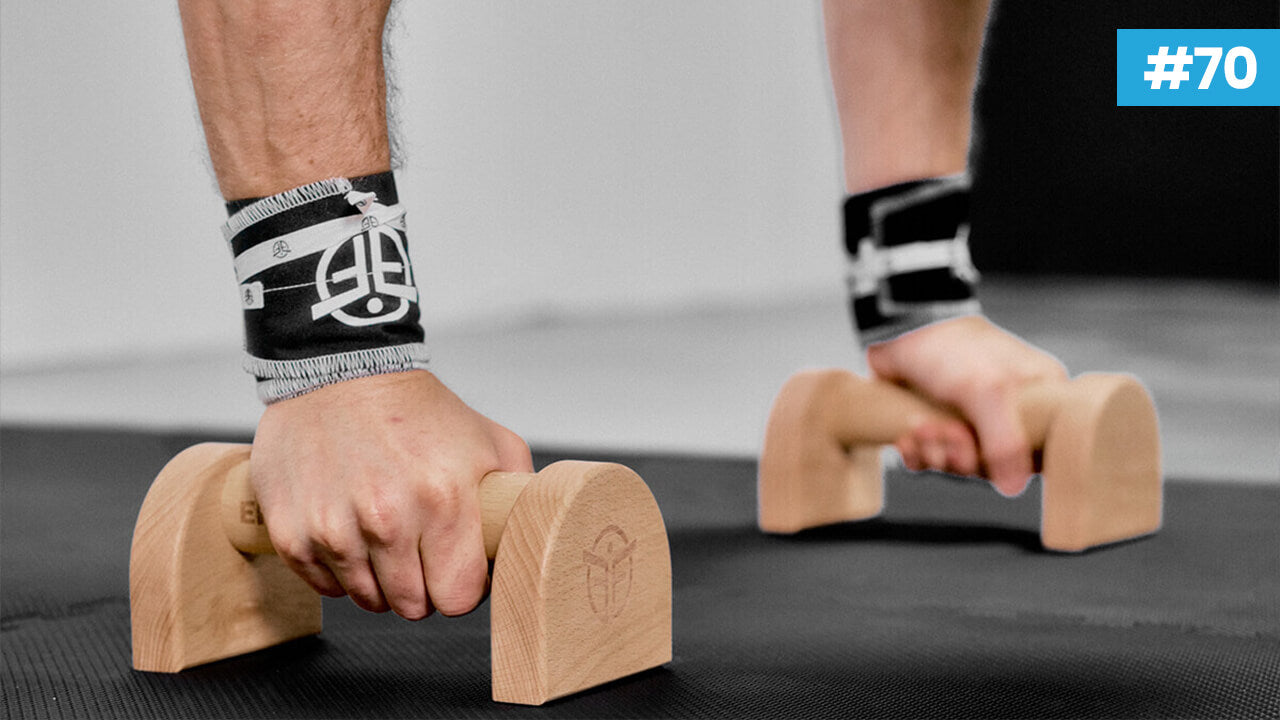
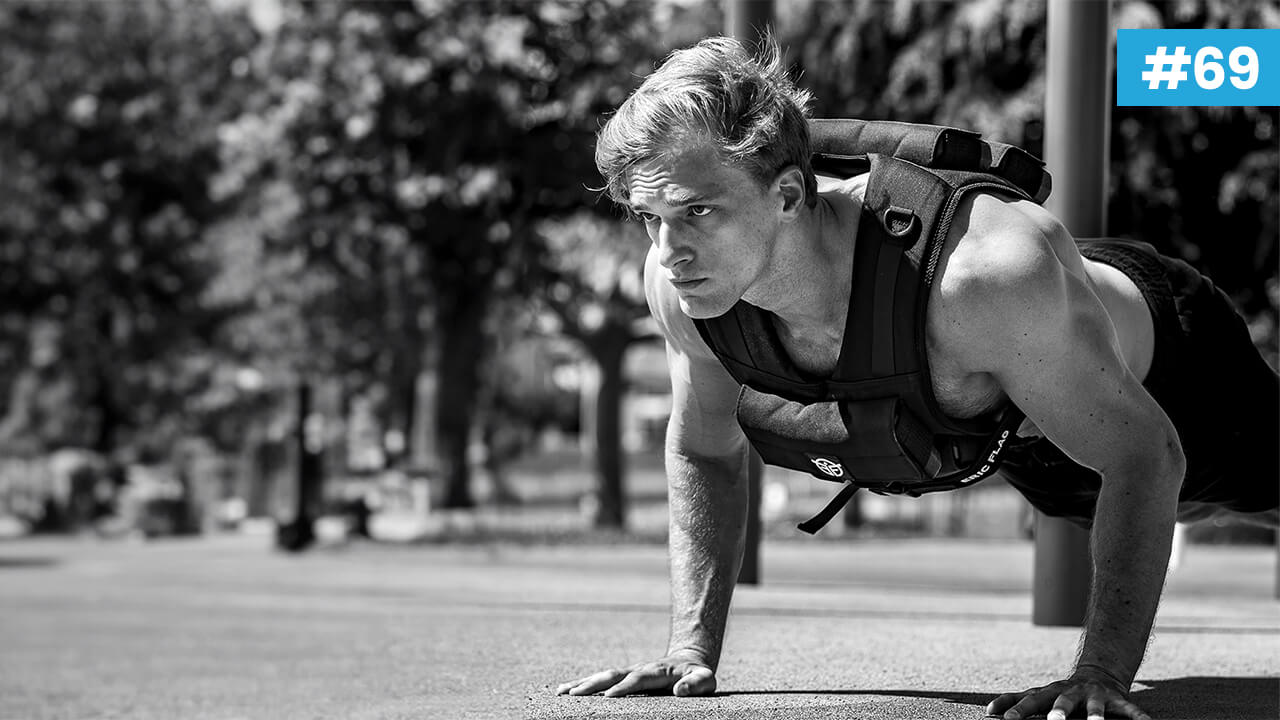
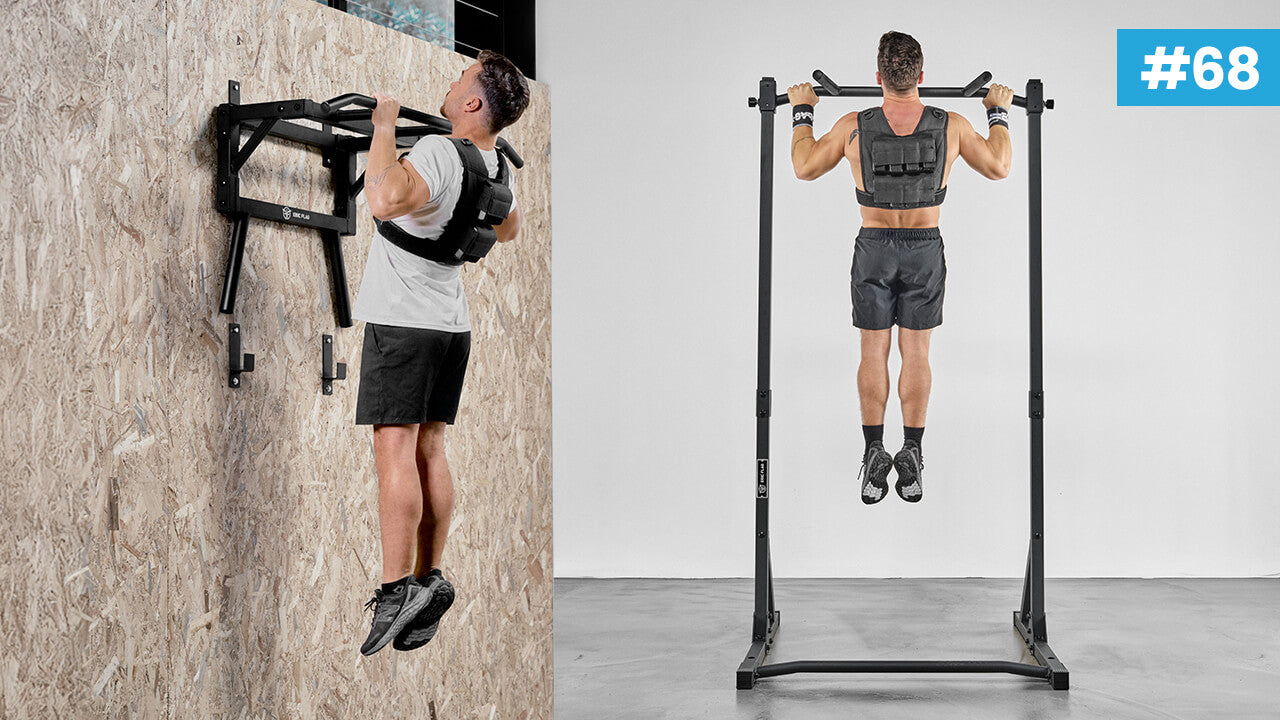

1 commento
A complete and well-written tutorial!
Mathias
Commenta
Questo sito è protetto da hCaptcha e applica le Norme sulla privacy e i Termini di servizio di hCaptcha.